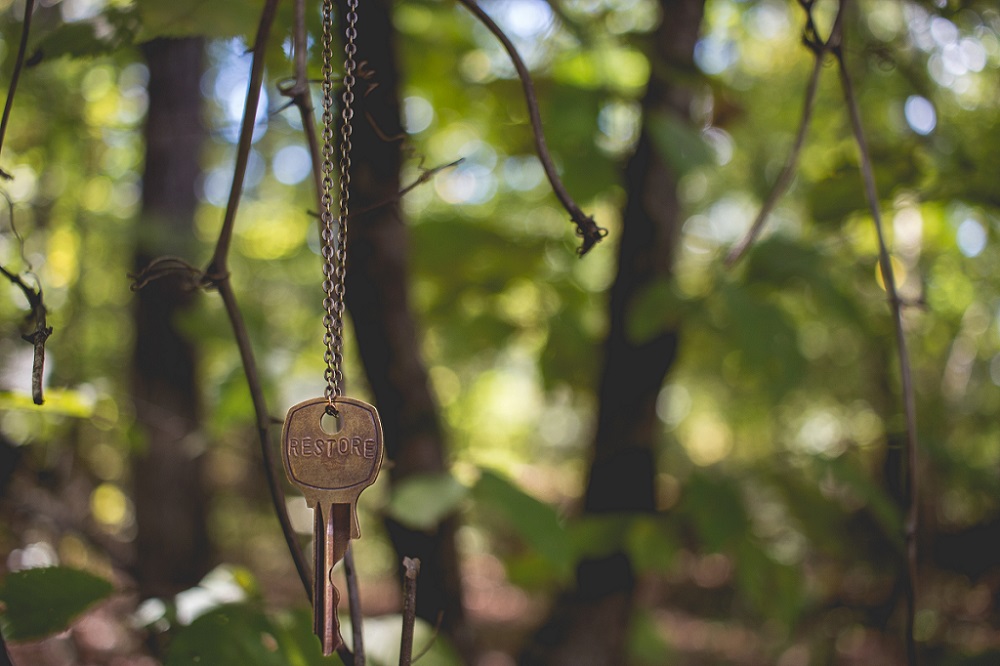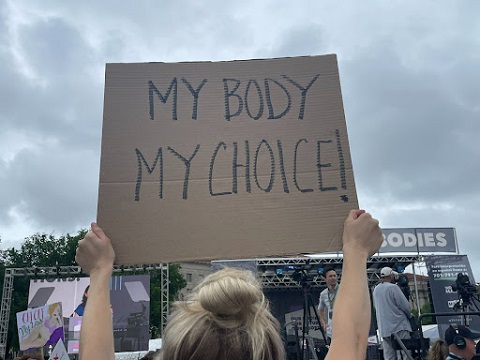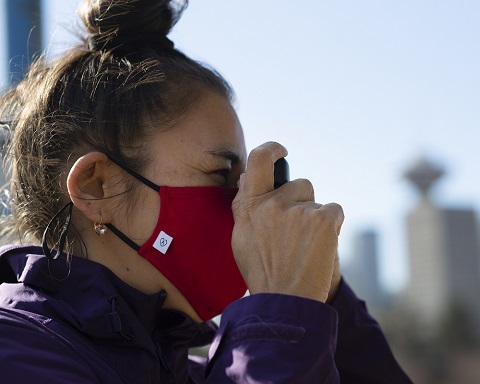By Helen Hill, Street Roots
“My barn burned, now I can see the moon.” – Mizuta Masahide
There are many levels of loss for people on the streets. There is the annoyance of sleeping bags, food and clothing ruined by rain. There is the frustration of stolen shoes, cigarettes and coats. Then there is the debilitating loss of identification, bus tickets and money. A deeper, more insidious sense of loss may take root over time; loss of dignity, family, community, health, privacy and sanity.
As with anyone, on or off the streets, loss can feel devastating and empowering, deforming and cleansing. It can feel like the last straw or a chance to begin again, an opportunity for deeper spiritual wisdom or a slap in the face.
The Street Roots vendor community had a lot to say about loss. With far fewer material possessions than most, and a life stripped to bare essentials, people living in extreme poverty and on the streets are, in many ways, experts on the subject of loss, and masters of resilience and courage in the face of repeated losses.
“About loss, having things taken, I would say, let it go. Don’t hang on. Let it go.”
Vendor Mark Rodriguez believes homeless people know more about loss than others. He advocates letting things go gracefully, when possible.
“About loss, having things taken, I would say, let it go. Don’t hang on. Let it go,” he said.
“I kept things that meant something to me in a little heart-shaped box: stamps, keepsakes, things that were precious to me that people gave me, things nobody would consider of any value. I had to let it go. It was hard,” Mark said. “I was begging the universe, please, let me keep this, it’s mine, it’s little, I can carry it. But I had to let go of it. I just couldn’t carry it anymore. It got crunched in the trash.
“It was supposed to be freeing, but it wasn’t,” he said. “I felt I had no advocate on my side that was taking care of me. It made me feel that what was special to me wasn’t special. There’s that Zen proverb, if you love something, let it go! If it comes back, it’s yours; if it doesn’t, it wasn’t meant to be! Amen. Hallelujah!”
Mark cautions people to hang on to their ID – practical wisdom, he calls it.
“I’ve lost that twice. I was sleeping and they cut it right off my shoulder strap. Twice. I’m going today to try to get it back,” Mark said. “It’s a long process.”
Chris Drake spoke of the loss of what can be replaced versus the irreplaceable.
“Everything I own has been lost over time – clothing, furniture, everything – but it’s all replaceable,” Chris said. “The only thing I managed to keep was my dog’s collar. She died when I was 6. I kept her collar. I used to carry it on me everywhere so it was safe. Then my other dog died. I kept her collar, too. The partner I was with didn’t care about them, and they got ruined with mould. I had to throw them out. Those are the things that can’t be replaced. And then there’s the people that can’t be replaced, like my beautiful wife. I never want to lose her.”
David Northcutt is philosophical about loss.
“I’ve lost money, my wallet, clothes, backpacks, coats, shoes, a place to live,” he said. “It hurts really bad to lose everything. I had a bicycle I got for my birthday last year. It had a flat tire and I had it locked up; I was coming back to fix it and somebody stole it. They couldn’t have gotten much money for it.
“But I always get back double,” David said. “Whoever was trying to hurt me, they can’t hurt me anymore because I get it back double, because I treat everybody the same way, with respect. Money comes and go; things come and go. It’s not about the things; it’s about the relationships and the spiritual relationship you have with your higher power. It’s about being there for your family and friends.
“It’s really not important to lose the things you have because you gain wisdom, knowledge and experience. Sometimes you needed to lose that thing to have what you are gaining,” he said.

Tony PrinceDeno has been on a roller coaster of loss and hope lately.
“Friday morning, some guy from Central City Concern tells me I will have an apartment by Monday,” he said. “Nothing could ruin that day for me. I was so happy. But at the end of the day, I’d lost my wallet. Not only that, I woke up and my bags were gone. When I found them, the rats had got into my bag – there were tortillas in it. And then the guy from CCC never called me on Monday. Then I had to get all my IDs back, Social Security card, driver’s license, birth certificate. The bank stuff is impossible until you get the rest of your IDs back. It’s been hard.”
Sometimes people lose physical parts of themselves.
“Bob, the man I’m with, he lost his fingers,” Gail Marcotte said. “He got in trouble. He was homeless. I didn’t like to see him out in the cold and hungry. I brought him in for a hot bath, gave him some food. He was doing dumpster diving, and his fingers got infected. I didn’t think the infection was that bad, but he had to go to the hospital. When I got there, I wasn’t allowed to see him. They cut off his two index fingers.”
Johnny Belknap has a practical, survival-based approach to loss.
“When someone takes your stuff, you have to change locations because that someone knows where you are and they got away with it once. Why not try it again?” he said. “Especially if it’s someone who doesn’t have anything and they have nothing to lose. You have to move locations; you have to be on guard.”
Kay Semple lost her driver’s license in Florida. Not having a driver’s license has led to a chain reaction of difficulties for Kay.
“They kept giving me tickets for living on the street, and then I had a hard time getting a job with all those tickets and no driver’s license,” Kay said. “They told me to go to a shelter, and I tried, but they said I wasn’t a resident, I needed a driver’s license. I went back and told the police officer I wasn’t allowed to stay in the shelter, and he said, ‘You have to move on then; you can’t stay here.’ The tickets turned into trespassing charges. I have a criminal record now. I’ve never broken the law in my life. All of a sudden I was a criminal because I was homeless.
“They won’t give me my driver’s license back until I pay all those fines,” she said. “Why should I pay fines for being homeless?”
“Friday morning, some guy from Central City Concern tells me I will have an apartment by Monday. Nothing could ruin that day for me. I was so happy. But at the end of the day, I’d lost my wallet. Not only that, I woke up and my bags were gone. And then the guy from CCC never called me on Monday. Then I had to get all my IDs back, Social Security card, driver’s license, birth certificate. The bank stuff is impossible until you get the rest of your IDs back. It’s been hard.”
Karen Fleming said she deeply feels the impending loss of SAFES, the Salvation Army Female Emergency Shelter on Second Avenue in downtown Portland. They recently lost their public funding.
“I am losing some friends because the Salvation Army women’s shelter is closing down,” she said. “I have a couple of friends who are in there, and they don’t know where they are moving to. They have no idea where to go.”
E. J. Lilly is a young woman who has been living in a shelter for many months. Like Karen, she is feeling the loss of SAFES.
“SAFES houses lots of women,” E.J. said. “There are going to be more women on the streets. Safety is not a priority obviously. Just coming here today I saw probably four women that are aaaagh! There were three or four women just brutalized. I don’t understand a culture and a city that doesn’t take care of women, single women. It’s scary. I love Portland and the Northwest, but I constantly think about moving to another country that cares for every life.”
E.J. continued her reflections on loss: “I lost my mother, Jupiter the dog, my kid. The man I married. My husband: he left; he did not die. A broken finger, which is my livelihood, my hands. I had to quit my job. An ejection by my father from the home where I took care of my mother until she went into hospice. That home was my shelter. I didn’t deal with homelessness until my mother passed away. As long as my mother was alive, I always had shelter.
“Loss, out of order,” she said. “Death and near death. My health and breath. Photos. Music. Space. Sleep. Safety. Innocence. Voice. Dreams.”




















